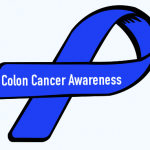 A constant theme in medicine over the past few years has been questioning whether routine screening for certain diseases is actually helpful.
A constant theme in medicine over the past few years has been questioning whether routine screening for certain diseases is actually helpful.
For the most part, the answer is surprising and counterintuitive no.
For example, the use of the PSA test to detect prostate cancer does, in fact, lead to more diagnoses. However, this does not necessarily translate into saving lives. And the real downside is that once the hint of prostate cancer is there, patients are forced into the system, which can mean unnecessary surgeries that leave many men impotent and incontinent.
The same holds true with breast cancer and mammography. Routine mammography will pick up cancers that are indolent or incipient and may never become a problem (these are called incidentalomas). Yet, once something is found, it may require an unnecessary biopsy, not to mention the emotional devastation that even the suggestion of cancer will cause for many women.
The answers for these two examples are simply not there yet, but the questions are at least being asked.
The good news is that there are screens that do what is expected save lives: routine colonoscopy and sigmoidoscopy (which examines only the lower colon).
A study by the Harvard School of Public Health (HSPH) published in the September 19th issue of The New England Journal of Medicine provides evidence that these screens can reduce mortality from colorectal cancer by as much as 40 percent. The study included more than 88 thousand people over a 22 year period, and concluded that if all participants had undergone colonoscopies, 40% of colorectal cancers would have been prevented. This is because colorectal cancers begin as polyps, which can be removed during the colonoscopy procedure. Sigmoidoscopy, as expected, was ineffective for preventing proximal (higher up) cancers, but still was effective in preventing deaths in the distal region.
The results from another screen, fecal occult-blood testing (a very rapid test that is performed in the doctor s office), were less apparent. Nishihara s group also examined the utility of this test. During a 30-year follow-up period, patients that had fecal occult-blood testing had a 22-32 percent reduction in the death rate from colon cancer compared to patients that were not tested. However, the all-cause mortality for both groups was the same.
"Each year, more than 1.2 million people are diagnosed with colorectal cancer worldwide. Our findings could help improve and strengthen the current guidelines for colorectal cancer screening," said Reiko Nishihara, lead author and research fellow in the Department of Nutrition at HSPH.
In the same NEJM issue, an editorial by Theodore R. Levin, M.D., and Douglas A. Corley, M.D., Ph.D. of the Kaiser Permanente Medical Center San Francisco in California wrote an editorial entitled Colorectal-Cancer Screening Coming of Age: Editorial, in which they concluded In summary, both colonoscopy and fecal occult-blood testing are effective for colorectal-cancer screening, and these new studies support current screening guidelines.
ACSH s Dr. Gil Ross says, There are a few actions that are definitively known to prevent cancer quitting smoking, protecting your skin from the sun, and getting vaccinated against HPV (as well as Pap tests) and hepatitis B. Now you can add colon cancer screening to the list. I strongly suggest that everyone should be doing all of this.


